The Alienist 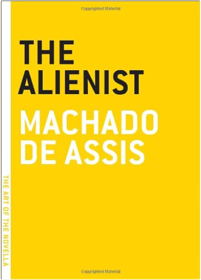 Brilliant physician Simão Bacamarte sacrifices a prestigious career to return home and dedicate himself to the budding field of psychology. Bacamarte opens the first asylum in Brazil hoping to crown himself and his hometown with “imperishable laurels.” But the doctor begins to see signs of insanity in more and more of his neighbors. . . . With dark humor and sparse prose, The Alienist lets the reader ponder who is really crazy. *** This is a Hybrid Book. Melville House HybridBooks combine print and digital media into an enhanced reading experience by including with each title additional curated material called Illuminations — maps, photographs, illustrations, and further writing about the author and the book. The Melville House Illuminations are free with the purchase of any title in the HybridBook series, no matter the format. Purchasers of the print version can obtain the Illuminations for a given title simply by scanning the QR code found in the back of each book, or by following the url also given in the back of the print book, then downloading the Illumination in whatever format works best for you. Purchasers of the digital version receive the appropriate Illuminations automatically as part of the ebook edition. The Girl with the Golden Eyes 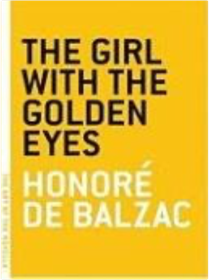 Adolphe 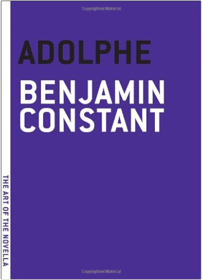 First published in 1816, Adolphe is the story of a young man with all the privileges and advantages of a noble birth, bt who's still haunted by the meaninglessness of life. He seeks distraction in the pursuit of the beautiful, but older and married Ellenore, a fictionalized version of Madame de Stael. The young Adolphe, inexperienced in love, falls for her unexpectedly and falters under the burden of the illicit love. The Art of The Novella Series Too short to be a novel, too long to be a short story, the novella is generally unrecognized by academics and publishers. Nonetheless, it is a form beloved and practiced by literature's greatest writers. In the Art Of The Novella series, Melville House celebrates this renegade art form and its practitioners with titles that are, in many instances, presented in book form for the first time. The Illusion of Return 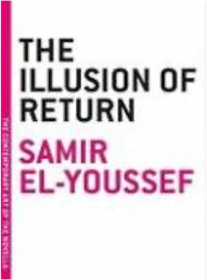 "[A] vivid portrait of life in wartime Lebanon, and the temporary refuge provided by friends . . . poignant and evocative."-The Economist "El-Youssef is unflinchingly critical of aspects of his society. . . . Puncturing myth to allow for grief and understanding, the novel attempts to reveal a more complex human reality behind the smokescreen of tales of heroism and martyrdom."-Guardian "A nuanced, thought-provoking look at this world, free of easy, political answers."-New Statesman A young Palestinian living in exile in London confronts his past and the one explosive night that tore him from his friends and family. With humor and insight, he untangles the intimate forces that cause personal tragedy and historic tragedy to intersect. Deepening our understanding of the headlines, The Illusion of Return is an intelligent, funny, sympathetic, and intimate glimpse into the forces-political, religious, and otherwise-that thrust unwanted into people's lives. Samir El-Youssef is Palestinian, born in Rashidia (a Lebanese refugee camp), and is a widely respected Middle East peace activist. His first book, Gaza Blues, was co-authored with the Israeli author Etgar Keret. His writing has appeared in the Guardian, New Statesman, and The Washington Post. In 2005, he won the Swedish PEN Tucholsky Award for promoting peace and freedom of speech in the Middle East. He lives in London. This is his first novel in English. A Sleep and A Forgetting 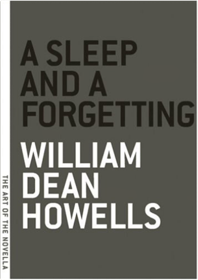 The Coxon Fund 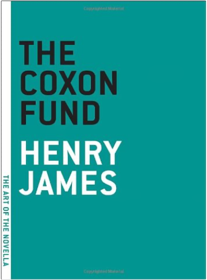 Henry James examines one of his favorite topics—the artist’s place in society—by profiling a “genius” who just can’t seem to support himself. A dazzling intellectual and brilliant speaker, Mr. Saltram has become the most sought-after houseguest in England. But, as his intellectual labors slacken, it beomes harder and harder to get him to leave. A wry, edgy comedy about the fine line between making art...and freeloading. The Coxon Fund shows off a gift that is rarely appreciated about Henry James: he can be wickedly funny. The Art of The Novella Series Too short to be a novel, too long to be a short story, the novella is generally unrecognized by academics and publishers. Nonetheless, it is a form beloved and practiced by literature's greatest writers. In the Art Of The Novella series, Melville House celebrates this renegade art form and its practitioners with titles that are, in many instances, presented in book form for the first time. The Lesson of the Master 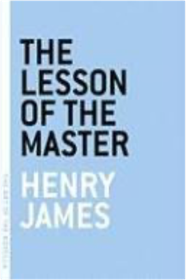 This brilliantly realized, morally ambiguous tale of a young writer and his encounter with "The Master," an accomplished writer whom the young man has long idolized, is a humorous and devastating inquiry into the emotional price that an artist pays for his art. Rasselas, Prince of Abyssinia 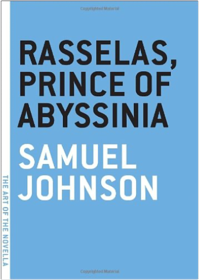 The other great book by the man who wrote the dictionary: This is Dr. Johnson's beautiful, engaging, and ultimately inspiring story of a royal brother and sister who escape the castle and, travelling in disguise, search for a way to feel more useful to society. It leads to a years-long adventure amongst poor people and rich men, great intellectuals and merchants, holy men and ruthless warriors. It is an eye-opening experience that shakes the siblings to their core and ultimately turns into the most sublimely wise and moving works that Johnson ever wrote, not to mention a masterpiece of English Literature. The Art of The Novella Series Too short to be a novel, too long to be a short story, the novella is generally unrecognized by academics and publishers. Nonetheless, it is a form beloved and practiced by literature's greatest writers. In the Art Of The Novella series, Melville House celebrates this renegade art form and its practitioners with titles that are, in many instances, presented in book form for the first time. The Pathseeker 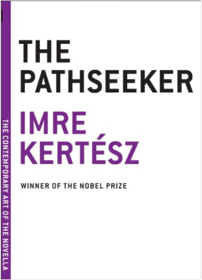 From the winner of the Nobel Prize for Literature for “writing that upholds the fragile experience of the individual against the barbaric arbitrariness of history..." The acclaimed Hungarian Holocaust survivor Imre Kertész continues his investigation of the malignant methodologies of totalitarianism in a major work of fiction. In a mysterious middle–European country, a man identified only as “the commissioner” undertakes what seems to be a banal trip to a nondescript town with his wife—a brief detour on the way to a holiday at the seaside—that turns into something ominous. Something terrible has happened in the town, something that no one wants to discuss. With his wife watching on fearfully, he commences a perverse investigation, rudely interrogating the locals, inspecting a local landmark with a frightening intensity, traveling to an outlying factory where he confronts the proprietors ... and slowly revealing a past he's been trying to suppress. In a limpid translation by Tim Wilkinson, this haunting tale lays bare an emotional and psychological landscape ravaged by totalitarianism in one of Kertsz's most devastating examinations of the responsibilities of and for the Holocaust. The Contemporary Art of the Novella series is designed to highlight work by major authors from around the world. In most instances, as with Imre Kertész, it showcases work never before published; in others, books are reprised that should never have gone out of print. It is intended that the series feature many well-known authors and some exciting new discoveries. And as with the original series, The Art of the Novella, each book is a beautifully packaged and inexpensive volume meant to celebrate the form and its practitioners. The Man Who Would Be King 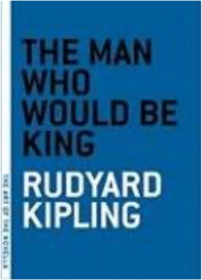 A Happy Man  "A noirish rumination on being too happy..." This book asks a simple question: Is it possible to write compellingly about a happy person? In the hands of celebrated (but never before translated into English) Swiss author Hansjörg Schertenleib, the answer is a resounding yes—because, as it turns out, even happy people are surrounded by unhappy people, which can make for considerable stress, and, well, what’s a happy man to do? And it’s not as if the hero of this book—whose name is, well, This—is a pleasant but unaware zombie. He’s a smart, interesting, quirky jazz musician...albeit with a wife suffering from depression, and a rebellious teenaged daughter. They find his contentedness more and more irritating. And yet This just can’t help it—life makes him happy. And the mounting tension that results is beautifully set off by Schertenleib’s lyrical prose, the smoky setting of Amsterdam, and the dialogue that’ s as edgy as that of a noir movie. And thus a book that seems at first a writerly experiment becomes a gradually intensifying tale of a simple bit of human hope holding on against great odds, to an inspiring and shocking ending. The Contemporary Art of the Novella series is designed to highlight work by major authors from around the world. In most instances, as with Imre Kertész, it showcases work never before published; in others, books are reprised that should never have gone out of print. It is intended that the series feature many well-known authors and some exciting new discoveries. And as with the original series, The Art of the Novella, each book is a beautifully packaged and inexpensive volume meant to celebrate the form and its practitioners. Lucinella 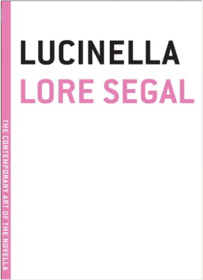 Lore Segal's tour de force look at the New York literary scene was a hit when it was first released in the 1970s, winning the praise of the literary elite. John Garnder called it “magical.” William Gass said it was “witty, elegant, beautiful.” Stanley Elkin called it “a shamelessly wonderful novel, so flawless one feels civilized reading it.” It's been a cult classic ever since, and appears here in its full, original text, as fresh as ever: the story of the whimsical New York poet Lucinella and her adventures among the literati. It starts at Yaddo writers colony, where life is idyllic, meals are served to you in your rooms, and cocktails are ready at day's end … and still the writers complain and compete. Then it moves back to New York City, where the pampered once again face reality, and wonder: Will a different husband … or the right publisher … or the perfect filing system … put life in order? Lucinella and her circle feel lacking and keep looking, busily going to parties and watching one another 's lives closely for signs of happiness, love and despair. Segal depicts it all with a perfect blend of love and malice. And at the center is Lucinella herself, so full of humanity and frailty that these divertissements do her to death. “Here,” as Cynthia Ozick says, “is the enchanted microcosm, the laughter of mortality.” The Contemporary Art of the Novella series is designed to highlight work by major authors from around the world. In most instances, as with Imre Kertész, it showcases work never before published; in others, books are reprised that should never have gone out of print. It is intended that the series feature many well-known authors and some exciting new discoveries. And as with the original series, The Art of the Novella, each book is a beautifully packaged and inexpensive volume meant to celebrate the form and its practitioners. The Devil 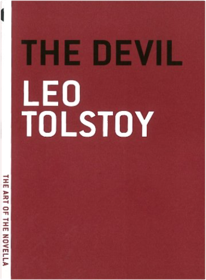 Leo Tolstoy is known for epic novels that brilliantly dissect society, but the novella The Devil may be the most personally revealing—and startling—fiction he ever wrote. He thought it so scandalous, in fact, that he hid the manuscript in the upholstery of a chair in his office so his wife wouldn't find it, and he would never allow it to be published in his lifetime. Perhaps that's because the gripping tale of an aristocratic landowner slowly overcome with unrelenting sexual desire for one of the peasants on his estate was strikingly similar to an affair Tolstoy himself had. Regardless, the tale—presented here with the two separate endings Tolstoy couldn't decide between—is a scintillating study of sexual attraction and human obsession. The Art of The Novella Series Too short to be a novel, too long to be a short story, the novella is generally unrecognized by academics and publishers. Nonetheless, it is a form beloved and practiced by literature's greatest writers. In the Art Of The Novella series, Melville House celebrates this renegade art form and its practitioners with titles that are, in many instances, presented in book form for the first time. The Man that Corrupted Hadleyburg 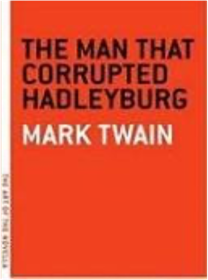 Close to Jedenew 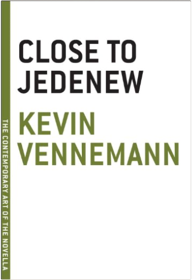 It begins like a classic German fable: Children from the rural village of Jedenew, Poland, get together late at night to play together in the dark woods. But their game is to pretend they live in the imaginary world of the Jedenew that came before them-when it wasn't occupied by the Nazis, and their Jewish friends weren't mysteriously disappearing one by one. Kevin Vennemann's writing-already a sensation with the major publishing houses of Europe-is evocative of W.G. Sebald for its lyrical style and bold intelligence. The innovative simultaneous plot-consisting of the real and imaginative world of the children-has earned comparison to the piercing analogies of Kafka. But the accessible and absorbing narrative of Close to Jedenew, as well as its beautifully lush prose, signals the emergence of one of the most original and masterful young writers to appear in decades. The Contemporary Art of the Novella series is designed to highlight work by major authors from around the world. In most instances, as with Imre Kertész, it showcases work never before published; in others, books are reprised that should never have gone out of print. It is intended that the series feature many well-known authors and some exciting new discoveries. And as with the original series, The Art of the Novella, each book is a beautifully packaged and inexpensive volume meant to celebrate the form and its practitioners. |


Delicious Library
Collection Total:
3,640 Items
3,640 Items
Last Updated:
Nov 2, 2025
Nov 2, 2025
 Made with Delicious Library
Made with Delicious Library